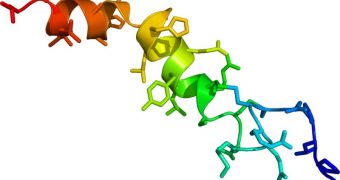A new study led by experts at the Stanford University School of Medicine, in California, was able to confirm for the first time ever that narcolepsy is an autoimmune disease. This hypothesis has been around for some time, but thus far lacked concrete evidences to support it. This is no longer the case.
This disorder, also known as hypnolepsy, occurs when the human brain becomes unable to regulate the body's normal sleep-wake cycle. The chronic neurological disorder makes people unable to get a good night's sleep, while forcing them to drowse during the day at irregular intervals.
When they do manage to fall asleep, narcoleptic patients start experiencing rapid-eye movement (REM) sleep about 5 minutes later, as opposed to an hour or so for people without the condition. Narcolepsy can also bring about instances of cataplexy, or sudden muscular weakness.
Researchers were able to determine relatively fast that this disease is not caused by mental illness of underlying psychological issues. Rather, a number of genetic mutations and abnormalities were suspected. Environmental factors such as viruses were suspected of playing a role in its emergence.
Interestingly, a spike in the incidence of narcolepsy was recorded in China during the 2009 H1N1 swine flu pandemic. In Europe, around 1 in 15,000 children who received the former flu vaccine Pandemrix also went on to develop this sleep disorder, Nature reports.
Stanford immunologist Elizabeth Mellins and narcolepsy researcher Emmanuel Mignot determined in the new study that narcolepsy is indeed an autoimmune disease, a set of conditions where the immune system attacks healthy cells in the body. Other notable examples of such diseases include Addison's disease, Lou Gehrig's disease, and Guillain-Barré syndrome (GBS).
Narcolepsy sets on as the brain gradually losses more and more neurons responsible for producing the hormone hypocretin, which contributes to keeping the body awake and alert. A special group of CD4+ T cells were found to be responsible for attacking hypocretin, exclusively in people with the disease.
“Up till now, the idea that narcolepsy was an autoimmune disorder was a very compelling hypothesis, but this is the first direct evidence of autoimmunity. I think these cells are a smoking gun,” Mellins explains. Details of the work appear in a paper published in the December 18 issue of the journal Science Translational Medicine.
The paper also reveals that the special type of CD4+ T cells believed to be responsible for narcolepsy also recognized a specific protein on the surface of the H1N1 virus. This allows the viral agent to act as an environmental trigger that made the immune system attack neurons responsible for producing hypocretin.
“The results are very important, but they need to do a replication study in a large group of patients and controls. If the findings are confirmed, the first important spin-off might be the development of a new diagnostic test,” says Leiden University Medical Center neurologist Gert Lammers, who is the president of the European Narcolepsy Network.

 14 DAY TRIAL //
14 DAY TRIAL //